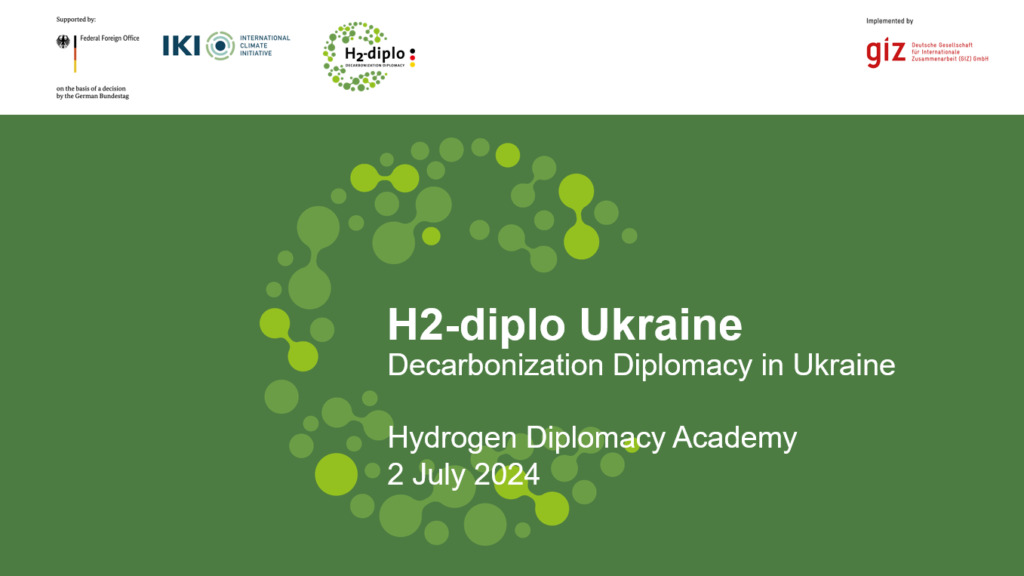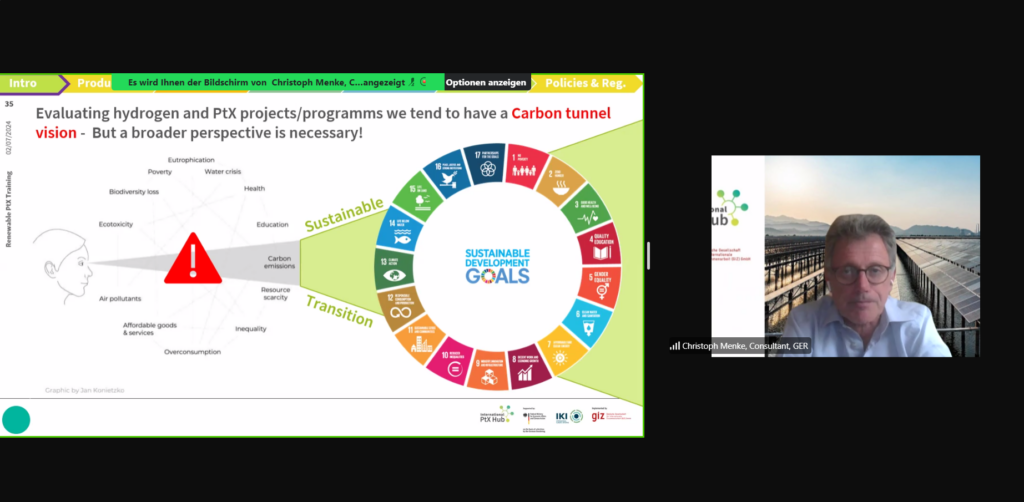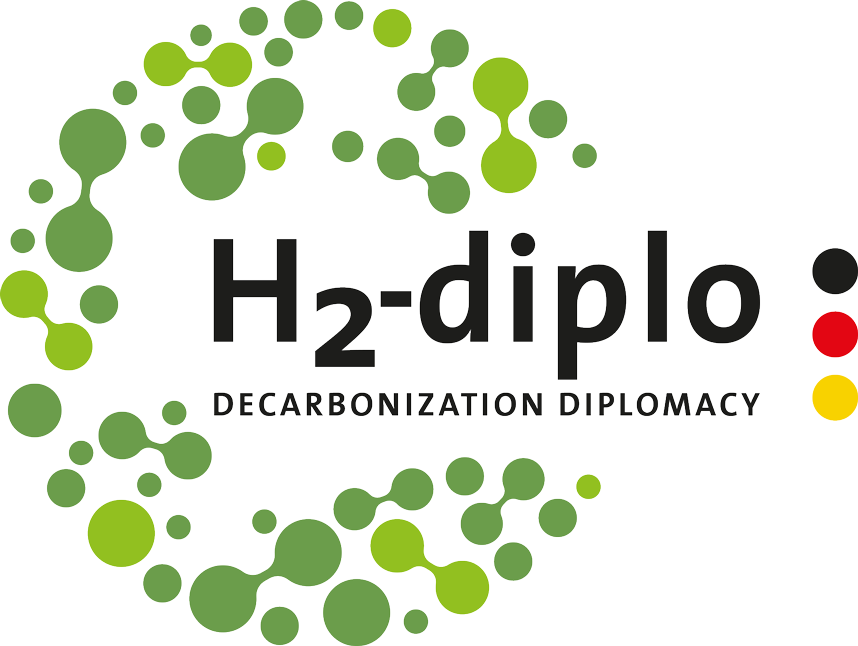
Hydrogen could play a significant role in Ukraine’s post war economy, both in terms of domestic decarbonization and exports, but large barriers need to be overcome, a recent GIZ study finds. Strategic partnerships built on trust and dedicated derisking instruments will be essential. The study has been launched during a webinar dedicated to inform Ukrainian diplomates on the potentials of green hydrogen for Ukraine’s energy future.
Some 60 Ukrainian diplomates came together on 2 July 2024 to understand the potential of green hydrogen to decarbonize domestic energy consumption and serve as an export commodity. Ukraine has drafted a hydrogen strategy to 2050 to accelerate scale up of the nascent industry. The strategy forms the basis for the country’s energy policy and outlines a radical overhaul of the energy system by setting the target to achieve carbon neutrality ten years sooner than was planned in previous documents. Ukraine envisages to become an exporter of green energy and industrial goods made with green energy. Moreover, the country holds large renewable energy endowment. This and many other factors point in favor of Ukraine producing green hydrogen at scale and transporting it to demand centers in Europe at favorable costs.


The current project pipeline extends only to ~0.6 mln tons of annual hydrogen production – all projects at concept stage, and the projected large-scale green reconstruction, including the planned rebuilding of the domestic steel industry, would significantly increase domestic demand, which would immediately conflict with export ambitions in the short- to mid-term. It can be expected that Ukraine will face a shortage of skilled labour, further hindering the rapid development as a net exporter of hydrogen. Financing is a major hurdle and in this context investor confidence. Much will depend on managing the chronically high investment costs. IFIs and partner countries can keep the cost of capital low and channel money towards selected hydrogen projects. Trust and derisking instruments targeted at the specific situation in Ukraine will be needed quickly. Further, Ukraine will need to successfully upgrade its gas infrastructure system for hydrogen transport, raise related funds, and tackle the lack of regulatory clarity.
The meeting concluded that the successful realisation of Ukraine’s green hydrogen potential may be more feasible in the mid- to long-term. In the short-term, a strategic focus on intelligent pilot projects and proof of concept is key. The best support to Ukraine would be to address the multiple challenges and barriers jointly, so that a sustainable hydrogen transition will create value and benefits for Ukrainians and drive a future net-zero industrial development quickly.
H2-diplo stands ready to support building the needed partnerships. The H2-diplo Office in Ukraine is currently working on further studies related to skills and to critical raw materials needed for green hydrogen production in Ukraine.
H2-diplo provides expert advice on the development of local climate-natural sector and industries based on renewable energy and green hydrogen. The objective is to increase the understanding of the use of green hydrogen for climate projection and economic development through dialogue and networking in partner countries and to provide capacity building and joint learning opportunities.
If you want to learn more about the potential of hydrogen for Ukraine, you can find the study here.
For more news about the H2-diplo activities, follow us on LinkedIn: H2-diplo – Decarbonization Diplomacy | LinkedIn
